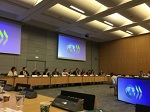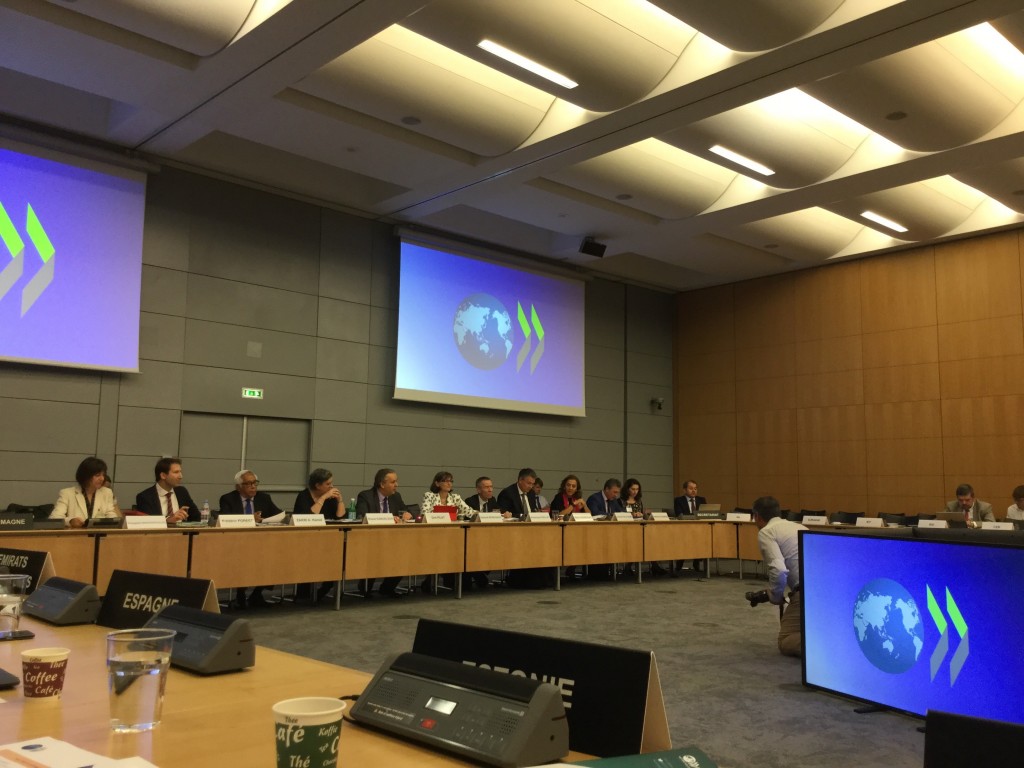The time to go ahead enhancing the Knowledge Triangle

Delegates from worldwide have highlighted the necessity to implement meassures as soon as possible to foster communication between universities and the private sector, in an OCDE meeting held at Paris.
The Knowlege Triangle is a concept that explains the relationship between Education, Innovation and Research & Technology. The objective of this OECD HIgh Level Event held at Paris is to enhance the contributions of Higher Education and Research Institutions to Innovation. Precisely, this is one of the key activities of the UNIR’s Vicechancellorship for Transfer Knowledge and Technology (http://transfer.unir.net).
“We need to join forces. The design of good policies is not enough, that is why we need your insights”, has said Deborah Roseveare, OCDE Head of Skills Beyond School Division. A number of ideas have emerged from the debate among ministers, diplomats, and researchers. All of them have stressed the necessity to take action now.

For example, Bjorn Haugstad, State Secretary for Education and Research of Norway, has explained that his country is trying to integrate “knowledge transfer into practice, from problem solving to the creation of more robust research communities and enhancing the sharing of knowledge between university and business”.
“It is time to go ahead”, Carmen Vela has said
In the same sense, Carmen Vela, Secretary for Research and Innovation of Spain, has encouraged other policy makers to implement meassures rapidly: “It is time to go ahead, the Knowledge Triangle it is not only a question for the Ministry of Education, it is an State question”. Moreover, Vela has pointed out that “Industrial sector has a problem of lack of capability to absorb the knowledge created by the researchers“. That is the readon why Vela has deffended actions to improve the mobility, recognition, flexibility and compensation for all the people who innovate, who go abroad, who wants to move from public sector to private and viceversa.
The Deputy Minister of Education of the Russian Federation, Venjamin Kaganov, has underlined some programs runned by the government. “We are creating business incubators inside the University, increasing the mobility of russian scientists and trying to join international projects”.
Other delegates has stressed the importance of interaction between university and companies. For example, involving research in real world problems, fostering a culture of innovation, and clarifying the role of University in society.
Carlos Fernández-Alameda
Director of the Science Dissemination Unit (UNIR)
